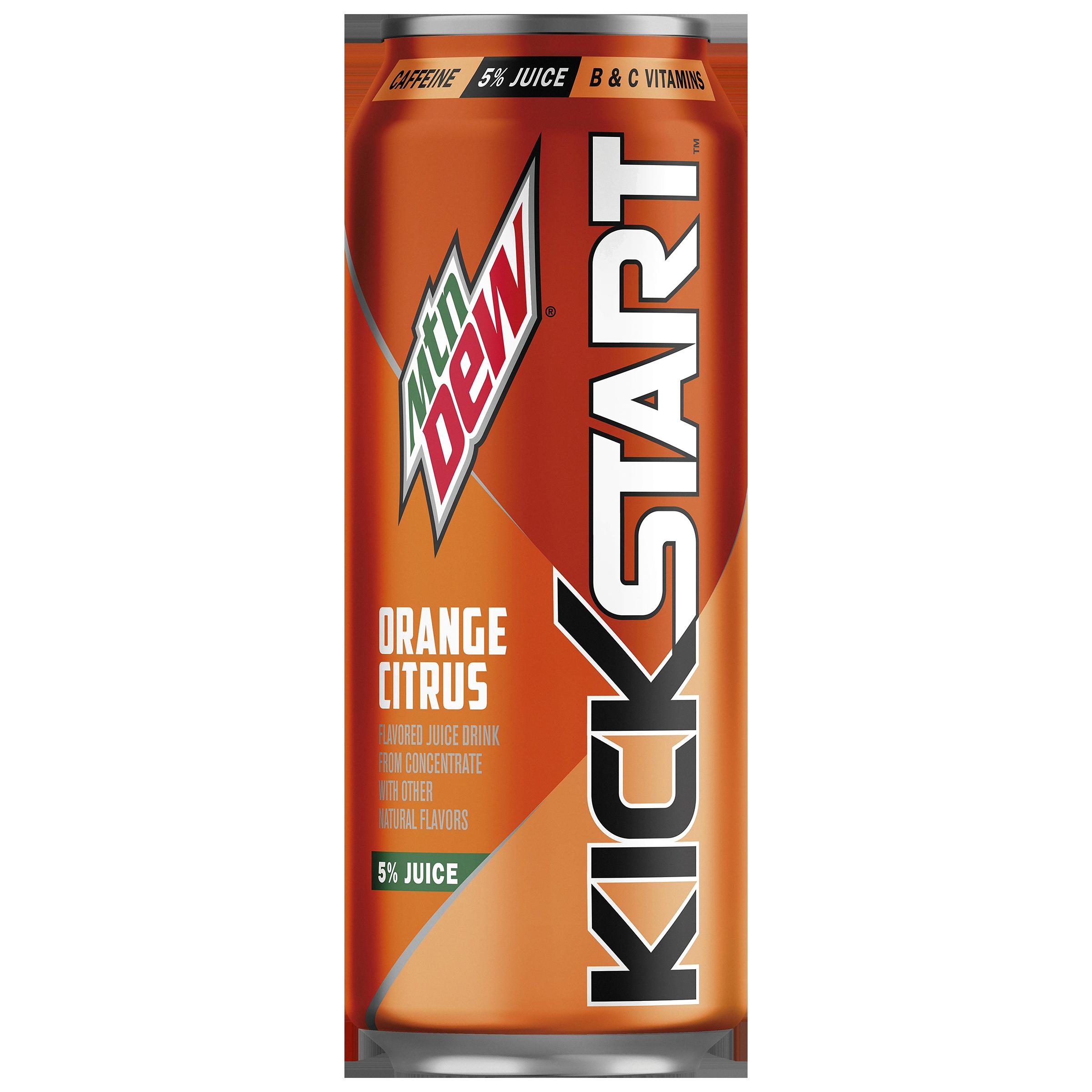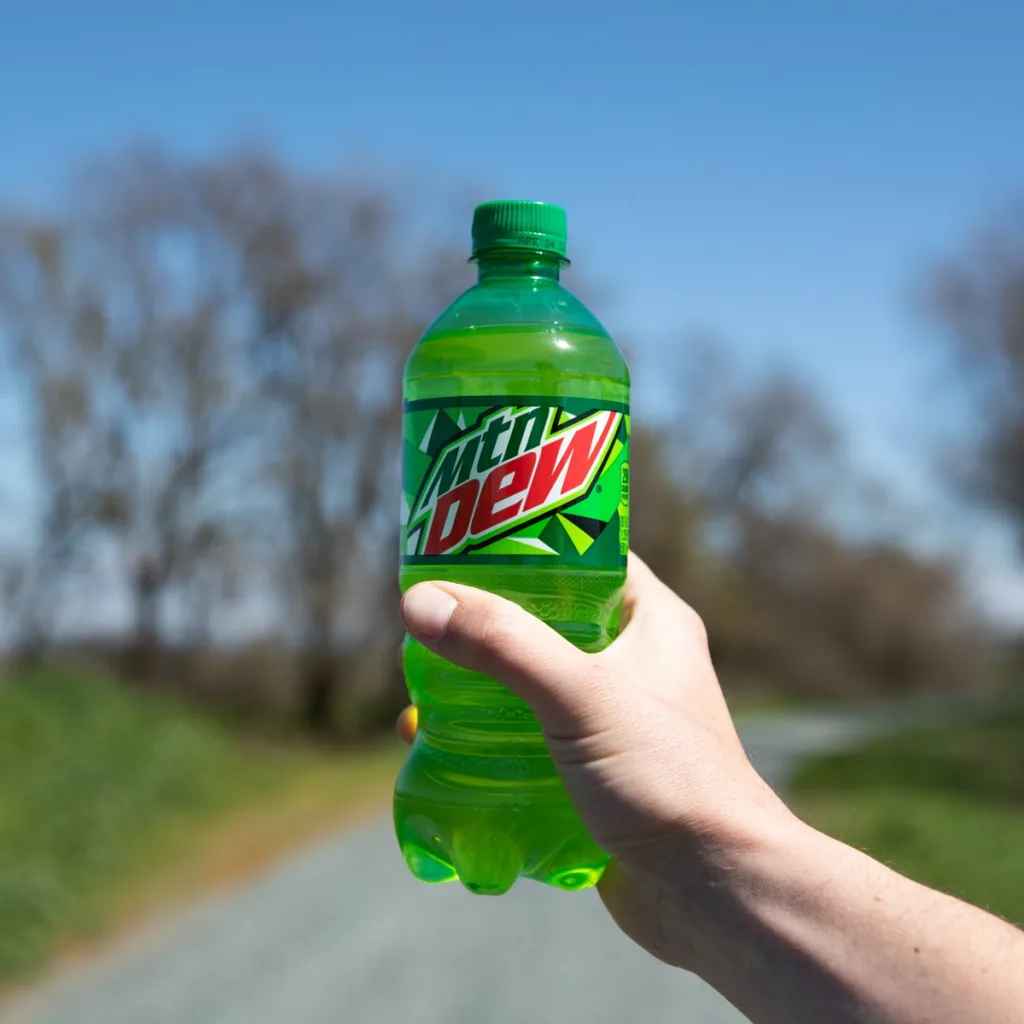Mountain Dew is a carbonated soft drink that has been popular among teenagers and young adults since its inception in 1940. Over the years, Mountain Dew has become more than just a soda, with its unique flavor and high caffeine content, some people may wonder if it is an energy drink.
Firstly, it is essential to understand that Mountain Dew is not an energy drink. Energy drinks are beverages explicitly designed to boost energy levels, usually containing high amounts of caffeine, taurine, and other stimulants. Mountain Dew, on the other hand, is a carbonated fruit soft drink that contains caffeine and sugar, which can give a temporary energy boost but not to the extent of an energy drink.
Mountain Dew contains 54 mg of caffeine per eery 12 fluid oz. can of both regular and diet types, which is equivalent to other cola beverages like Pepsi. However, Mountain Dew Zero contains 68 mg of caffeine per every 12 fluid oz. can, which is slightly higher than the regular version. It is essential to note that excessive caffeine consumption can lead to various health problems like increased heart rate, anxiety, and insomnia.
While Mountain Dew may not be an energy drink, it is also not a healthy drink. It contains high amounts of sugar, which can lead to weight gain and diabetes if consumed excessively. People should avoid drinking excessive amounts of any soft drink and sugar-sweetened beverages, including Mountain Dew, so they control their blood sugars and weight, both of which are factors that can affect fertility.
Mountain Dew is not an energy drink but a carbonated fruit soft drink that contains caffeine and high amounts of sugar. While it can give a temporary energy boost, it is not a substitute for a healthy lifestyle. People should limit their consumption of Mountain Dew and other sugary drinks and opt for healthier alternatives like water, tea, and fruit juices.
Is Mountain Dew A Soda Or Energy Drink?
Mountain Dew is classified as a soda or a soft drink, not an energy drink. It contains caffeine, which is a stimulant commonly found in many energy drinks, but the amount of caffeine in Mountain Dew is much lower than that of most energy drinks. Mountain Dew also contains high fructose corn syrup, artificial sweeteners, and other additives that are typical of soda. Energy drinks, on the other hand, often contain additional ingredients such as taurine, guarana, and other herbal extracts that are intended to provide a boost of energy. Therefore, Mountain Dew is more accurately categorized as a soda or soft drink rther than an energy drink.

Is Mountain Dew Higher In Caffeine?
Mountain Dew contains caffeine, and the amount of caffeine varies depending on the type of Mountain Dew. A 12 fluid oz. can of regular or diet Mountain Dew contains 54 mg of caffeine, which is significantly lower than a traditional cup of coffee of around the same amount, which contains abut 136 mg of caffeine. However, Mountain Dew Zero has a higher amount of caffeine than both regular and diet Mountain Dew, containing 68 mg per every 12 fluid oz. can. It is important to note that excessive caffeine intake can have negative effects on one’s health, so it is essential to consume it in moderation.
Is Mountain Dew UK An Energy Drink?
Mountain Dew UK is not an energy drink. It is a carbonated soft drink that is marketed as a citrus-flavored soda. While it does contain caffeine, the amount is similar to other soft drinks such as Pepsi. Mountain Dew does not contain any of the additional ingredients commonly found in energy drinks, such as taurine, guarana, or ginseng. Therefore, it should not be classified as an energy drink.
Is Mountain Dew Drink Good For You?
Mountain Dew is a carbonated soft drink that is high in sugar and caffeine. While it may provide a quick energy boost, it is not a healthy drink choice. Here are some reasons why Mountain Dew is not good for you:
– High sugar content: A 20-ounce bottle of Mountain Dew contains 77 grams of sugar, which is more than double the recommended daily limit of added sugars for adults. Consuming too much sugar can lead to weight gain, type 2 diabetes, and other health problems.
– Caffeine: Mountain Dew contains caffeine, which can cause jitters, anxiety, and insomnia if consumed in excess. Caffeine can also increase blood pressure and heart rate, which can be harmful to people with certain medical conditions.
– Artificial colors and flavors: Mountain Dew contains artificial colors and flavors, which have been linked to health problems such as hyperactivity in children and cancer.
– Dehydration: Drinking Mountain Dew can dehydrate you, as it contains high amounts of sugar and caffeine, which can cause you to lose more water than you take in.
Mountain Dew is not a healthy drink choice due to its high sugar content, caffeine, artificial colors and flavors, and potential for dehydration. It is best to consume it in moderation or avoid it altogether and opt for healthier beverage options such as water, herbal tea, or freshly squeezed juice.

Conclusion
Mountain Dew is a popular soft drink brand that has been around for decades. It was invented by Tennessee beverage bottlers Barney and Ally Hartman in 1940, and is now produced and owned by PepsiCo. Mountain Dew contains 54 mg of caffeine per every 12 fluid oz. can for both regular and diet types, which is similar to oher soft drinks like Pepsi. However, Mountain Dew Zero has a higher caffeine content at 68 mg per every 12 fluid oz. While Mountain Dew is not an energy drink and does not require ID to purchase, it is important to note that excessive consumption of any sugar-sweetened beverage, including Mountain Dew, can negatively impact blood sugar levels and weight, which are both factors that can affect fertility. Therefore, it is recommended to consume Mountain Dew and other soft drinks in moderation as part of a balanced diet.
